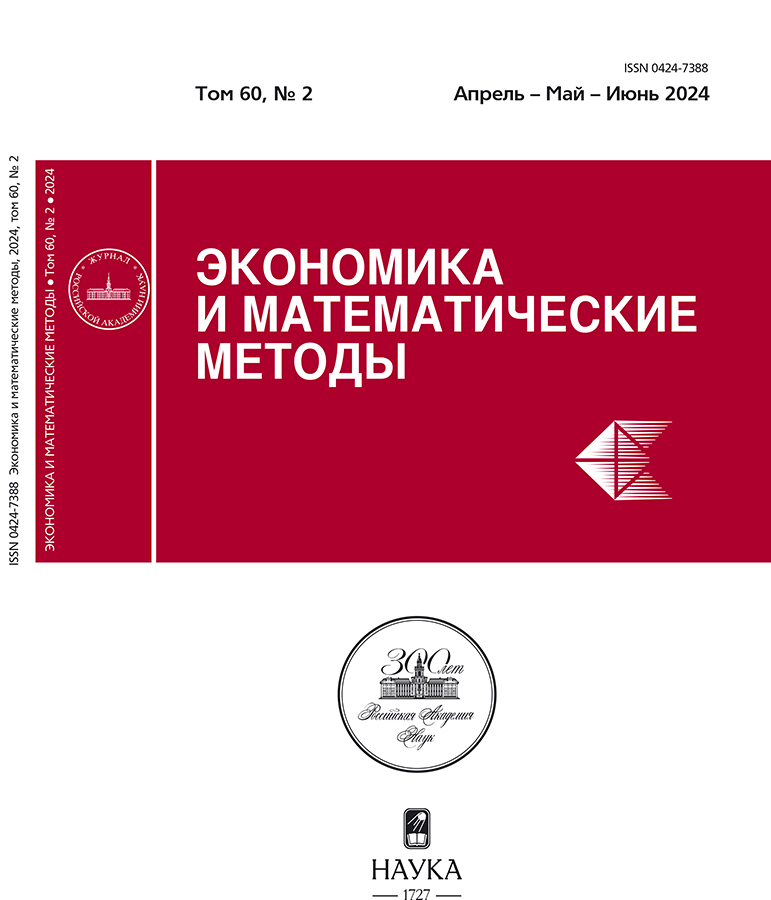Science, knowledge, and intellectual property: Ten years later. Part 2
- Authors: Rubinstein А.Y.1, Chukovskaya Е.E.2
-
Affiliations:
- Institute of Economics, Russian Academy of Sciences
- Scientific and Educational Center for Intellectual Property and Digital Economy
- Issue: Vol 60, No 2 (2024)
- Pages: 5-13
- Section: Theoretical and methodological problems
- URL: https://jdigitaldiagnostics.com/0424-7388/article/view/653297
- DOI: https://doi.org/10.31857/S0424738824020017
- ID: 653297
Cite item
Abstract
The second part of the article is devoted to some economic aspects of the activity of academic institutions involved not only in the production of knowledge, but also in its proliferation. The leading role in this process belongs to scientific journals, which represent the main channel of knowledge dissemination. The article substantiates the special type of costs of such journals, related to the payment of royalties as a fee for obtaining the rights to print and distribute the author’s texts in the form of journal articles, as well as a known part of the publisher’s costs due to the payment for reviewers’ labor, which is the most important element of journal production. It is shown that under the current conditions, journals, as a rule, do not have funds to pay for reviewing and royalties. Gradually, “free” assignment of copyright became the norm in the system of knowledge dissemination, with the negative consequences of the appearance of journals that charge authors for the publication of their texts. Taking this into account, the peculiarities of financing the production of knowledge, which acts as a public good, as well as the dissemination of knowledge in the form of journal publications, which requires public funding in the form of meritorious budget subsidies, are considered. The proposed recommendations apply not only to the state financing of production and dissemination of knowledge, but also to the implementation of the necessary institutional reforms to restore the status of the Russian Academy of Sciences as a self-governing organization of civil society with the return of all scientific institutions to its fold.
Keywords
Full Text
About the authors
А. Y. Rubinstein
Institute of Economics, Russian Academy of Sciences
Author for correspondence.
Email: arubin@aha.rul
Russian Federation, Moscow
Е. E. Chukovskaya
Scientific and Educational Center for Intellectual Property and Digital Economy
Email: echukovskaya@yandex.ru
Russian Federation, Moscow
References
- Дементьев В. Е. (2023). Предоставление научными журналами общественно полезных услуг должно финансироваться государством // Вопросы экономики. № 4. С. 135–150. [Dementiev V. Е. (2023). Provision of socially useful services by scientific journals should be financed by the state. Voprosy Ekonomiki, 4, 135–150 (in Russian).]
- Макаров П. Ю. (2022). Интеллектуальный капитал в понятийно-категориальном аппарате экономической науки: критическое осмысление и систематизация // Вопросы экономики. № 4. С. 5–25. [Makarov P. Yu. (2022). Intellectual capital in the conceptual and categorical apparatus of economic science: Critical comprehension and systematization. Voprosy Ekonomiki, 4, 5–25 (in Russian).]
- Полтерович В. М. (2023). Авторский капитал и реформирование российской публикационной системы // Вопросы экономики. № 6. С. 138–158. [Polterovich V. M. (2023). Author’s capital and reforming of the Russian publication system. Voprosy Ekonomiki, 6, 138–158 (in Russian).]
- Рубинштейн А. Я. (2018). Теория опекаемых благ: учебник. СПб.: Алетейя. 304 с. [Rubinstein A.Ya. (2018). The theory of patronized goods: Tutorial. Saint Petersburg: Aletheia. 304 p. (in Russian).]
- Рубинштейн А. Я. (2022). Патерналистское государство, академическая наука и научные журналы: теоретические заметки // Вопросы экономики. № 9. С. 139–157. [Rubinstein A.Ya. (2022). Paternalistic state, academic science and scientific journals: Theoretical notes. Voprosy Ekonomiki, 9, 139–157 (in Russian).]
- Гуманитарный сектор патерналистского государства (2023). Под ред. А. Я. Рубинштейна. СПб.: Алетейя. 300 с. [Humanitarian sector of the paternalistic state (2023). A.Ya. Rubinstein (ed.). Saint Petersburg: Aletheia. 300 p. (in Russian).]
- Bourdieu P. (2011). Capital cultural, secular y espacio social. Siglo, XXI, 84.
- Chen M.-H., Chang Y.-Y., Chiang M.-T. (2017). Human capital and career success of creative entrepreneurs: Is guanxi network a missing link. Journal of Small Business and Entrepreneurship, 29, 4, 313–331.
- Foray D. (2004). The economics of knowledge. Cambridge: The MIT Press.
- Franck G. (2002). The scientific economy of attention: A novel approach to the collective rationality of science. Scientometrics, 55, 3–26. Available at: https://link.springer.com/article/10.1023/A:1016059402618
- Grossman M. (1972). On the concept of health capital and the demand for health. Journal of Political Economy, 80, 2, 223–255.
- Lindahl von E. (1919). Die Gerechtigkeit der Besteuerung. Eine Analyse der Steuerprinzipien auf Grundlage der Grenznutzentheorie. Transl. by E. Henderson as: “Just taxation — a positive solution”. In: Musgrave R. A., Peacock A. T. (eds.). Classics in the theory of public finance. London: MacMillan, 1958, 4th Impression; 1967, 168–176.
- Portes A. (1998). Social capital: Its origins and applications. Annual Review of Sociology, 24, 1–24. Available at: https://www.jstor.org/stable/i211067
- Schaffner A. C. (1994). The future of scientific journals: Lessons from the past. (Discussion of the future of electronic scientific journals). Information Technology and Libraries, 13, 4, 239–247. Available at: https://faculty.washington.edu/jwj/lis520/schaffner.html
Supplementary files










